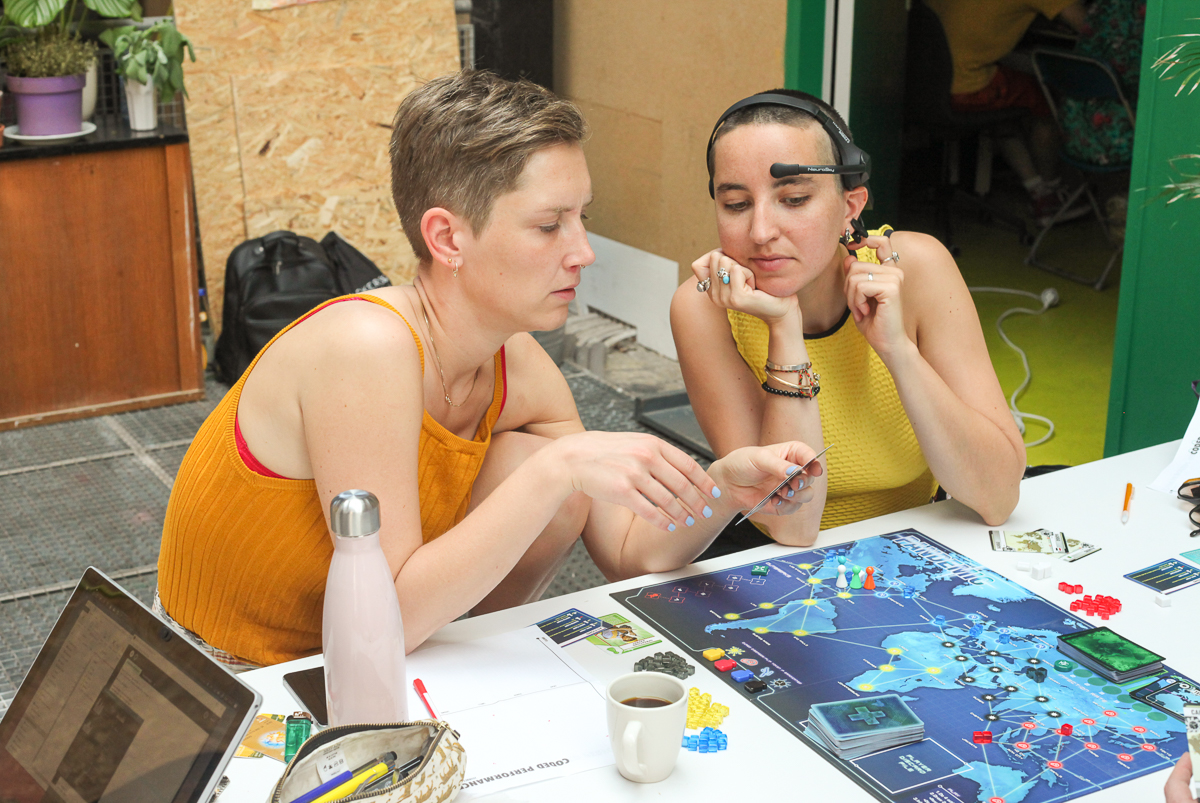Coded Performance
| Coded Performance | |
|---|---|
| Name | Coded Performance |
| Location | NDSM |
| Date | 2019/07/23 |
| Time | 9:30-16:30 |
| PeopleOrganisations | Zhi-fang Li, Maxim Safioulline |
| Type | HDSA2019 |
| Web | Yes |
| No | |
 In a world run by big data our subjective experiences often go unnoticed or unappreciated - by ourselves first and foremost. We wanted to look into the possibilities of embodying the intangible - to peek under the straightforward quantifiable actions and expressions into the murky waters of emotions and bodily reactions. How do we as designers account for the unaccountable - the sensory perceptions, the way our brains and our minds respond to them and adapt to the challenging and unpredictable situations? We chose the media of non-competitive games and brain-computer interfaces to make the attempt to come to terms with these complexities and challenge the existing design methodologies.
In a world run by big data our subjective experiences often go unnoticed or unappreciated - by ourselves first and foremost. We wanted to look into the possibilities of embodying the intangible - to peek under the straightforward quantifiable actions and expressions into the murky waters of emotions and bodily reactions. How do we as designers account for the unaccountable - the sensory perceptions, the way our brains and our minds respond to them and adapt to the challenging and unpredictable situations? We chose the media of non-competitive games and brain-computer interfaces to make the attempt to come to terms with these complexities and challenge the existing design methodologies.
Workshop notes
brain produces bits of electric current Electroencephalography (EEG) BCI = Brain Computer Interface
Bandwidths/ranges Gamma: problem solving, concentration Beta: busy, active mind Alpha: reflective, restful Theta: drowsiness Delta: sleep, dreaming
Attention = beta and gamma cumulative Meditation = activity in alpha range
Non-competitive gaming Game? 1. performance of an activity to your best ability 2. there’s a set of rules that everyone knows and agrees to follow
New Games Movement in US in the 70s and 80s, “Slaughter” https://killscreen.com/articles/inside-failed-utopian-new-games-movement/
Parlour games gaming and gamification used to generated art and creativity (Surrealists, Dadaists)
Chindogu Making completely useless items https://www.chindogu.com/?page_id=336
CODING NOTES Use Lerp to make smoother values (mindset only captures one reading per second, so will be jittery)
Put MindsetProcessing library folder into the > libraries folder of > Processing on the computer
We invited the participants to challenge their assumptions, re-examine their approaches and to attempt to take a different look at how they - their mind sand bodies - respond to new challenges. We hoped that as a result they would come away with a new understanding of themselves and their design practice.


